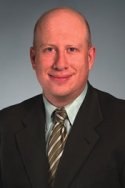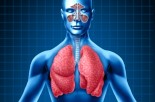You commute, you bike, run, walk outside, breathing in everything that is in the environment around you... how is this affecting your lungs?
Director of the VCS Research Institute and member of The US Oncology Network, Dr. Alex Spira, joins Wellness for Life Radio to share how to keep your lungs healthy given the toxic-filled environment that surrounds you.
Despite the fumes and pollution, Dr. Spira has tips to keep your lungs free and clear in order to help you breathe easier.
Also, learn how to detect lung cancer and the importance of seeing your local oncologist.
Transcription:
RadioMD Presents: Wellness for Life Radio | Original Air Date: May 15, 2015
Host: Susanne Bennett, DC
Guest: Alex Spira, MD, PhD
It's time to feel better with help from Dr. Susanne Bennett. Allergies, nutrition, ultimate wellness, all discussed right here, right now. It's Wellness for Life Radio on Radio MD. Here's your host, Dr. Susanne.
DR SUSANNE: Have you stopped to think for a second, besides oxygen in the air that we breathe, what you're putting into your body, into your lungs every time you take a breath? It all depends on the environment you live in. Second hand smoke, car exhaust fumes, you know, things that we can see and smell. Well, my next guest joins me to inform you that there are far many more chemicals we should be looking out for. He's here to share how to keep your lungs healthy.
Welcome to the show Dr. Alex Spira. He's an oncologist and director of the VCS Research Institute. Thanks, Dr. Spira, for being here. Now, let's explain to the listeners how chemicals in the air we breathe can affect our lungs.
DR. ALEX: Well, since the lungs are -- as I describe it to my patients -- the body's filter. Everything that you breathe outside gets in there, from pollen to allergies to pollution. So, anything that you're doing bad to the lungs, it gets right in there. So, you really want to make sure that you take good care of them and make sure that you're inhaling the least amount of pollutant as possible. Everything, as I said, from pollen to pollution and, of course, tobacco smoke is a big one to avoid.
DR SUSANNE: Oh, tobacco smoke. That's so true. I mean, still millions of people smoke all around the world. And you are an oncologist. Are you specifically a lung oncologist?
DR. ALEX: Yes, I am.
DR SUSANNE: Great. So then, you would know exactly what kind of chemicals that we are exposed to, that can be the trigger, the mechanism that can start this horrible disease. Can you give us some examples?
DR. ALEX: Well, as you said, cigarette smoke is the big one. That's, basically, you're inhaling poison every time you take a puff. But the other things we think about are pollution -- lung cancer, asthma and allergies are all much worse in big cities with pollution. If you look, for example, at China where they have very poor pollution regulations, the incidence of lung cancer and asthma in those places is very high. We know that they're high here even in the United States in the big cities that have very poor pollution controls. And that's one of the many reasons that a lot of people who lived long ago in factory towns got all these lung diseases as well. So, it's much worse living in big cities than if you live in the clean air countryside. But there's other things as well. Radon is one of the other big things that can seep in. It gets into your body and that's why there's a big thing to check that. There are small other pollutants that you may experience on a daily basis even on the job.
DR SUSANNE: I'm so glad that you actually mentioned radon. What is radon? People don't know what it is. It actually sounds like it's some kind of radiation. Can you explain it to them?
DR. ALEX: It's basically a natural by product that's in the ground. But the problem is it's hazardous where it doesn't ventilate properly. You get a very high dose in your house because that's where you are. It's a naturally produced product. There's nothing you can do about it. And the key thing is when it's there, to know it's there and develop a proper venting system to get rid of it. It's still not that common and it's unclear how much radon one needs to get that exposure. But everybody should have their houses checked and because it's a very easy, relatively inexpensive fix if you are having a problem. But then, again it's a natural product that there's nothing you can do anything about.
DR SUSANNE: Got it. There are test kits that you can get at the local hardware stores. Isn't that correct?
DR. ALEX: Oh, yes. They are incredibly cheap and everybody should do it by and large. I have done it at my house and everybody should do it if they are at all -- they should be concerned.
DR SUSANNE: Right. I've had patients come in with carbon monoxide poisoning within their own home. And that's another type of test that you can get. An easy to use -- and if you've got concerns, I know that you could even call and get it through your local fire department. They'll come out and check for you.
DR. ALEX: Oh, yes. Absolutely. Carbon monoxide is one of the big ones that affect people's lungs as well. And it could be deadly, as we all know.
DR SUSANNE: Right. You know, we talked about toxins from tobacco and the chemicals in it and all the chemicals -- not just the smoke but the cadmium which is a heavy metal and what not in tobacco smoke. But, besides tobacco what other triggers do you find that actually contribute to lung disease, in particular, lung cancer?
DR. Alex: Pollution again is one of the biggest ones. That's because everything that you breathe in that is just bad. You know, any kind of pollution is bad for you. So, you really want to try and minimize that and the key is, obviously, you can't avoid it. It's just to minimize and it's up to the authorities to try and minimize it in the air that we breathe. All that factory pollution that was -- you know we've done a much better job at regulating now over last two decades. But if you look at our patients in our 60s and 70s, we didn't do such a good job back then. So, anything one can do to avoid that. Plus, if you're working around the house, there are toxins in the air or you're doing something and you can see it or you can smell it, probably you can breathe it as well. So, you have to take the appropriate respiratory precautions.
DR SUSANNE: I actually found my office only because I really only wanted a parking lot. My office has a parking lot that's outside. I really didn't want to have a parking lot indoors, like a garage, because you can -- all those fumes that are just stuck in the parking lot going down deeper and deeper into the caverns of earth would always irritate my lungs. And so, it was one of the musts you know, is to get parking space outdoors so that I'm not breathing in those toxins. What other things that can we do besides, of course, living in a healthier environment? What can we do for ourselves? In my book, The 7-Day Allergy Makeover, I talk a lot about cleaning up your environment like using an air purifier. Do you recommend those as well?
DR. ALEX: Most people don't need an air purifier at home because our air is still pretty good by and large. So, you don't necessarily need one unless there's a lot of smells and things that you can smell around the house. It always makes me laugh when people are doing the construction work inside and say, "Oh, that smells bad." Well, don't you think that's going into your body? But, you know, keeping a clean environment, whatever reasonable, is good. The best you can do is just get out there and exercise because that'll just improve your lung function anyhow. So, if you have marginal lung function, the one thing that you can really do to work on that is get those muscles going and take nice deep breaths. And exercise is probably one of the best things that you can do.
DR SUSANNE: Well, exercise. Obviously, not on smoggy days because in LA sometimes, Dr. Spira, it can be super, super toxic. Especially in the summertime. But let's also then talk about what is it that exercise will do? Obviously, your lungs, you're saying, are our filters. Do we get all these toxins trapped in the lungs? Besides exercise, is there anything else we can do to get all that junk out?
DR. ALEX: I wish it was that easy to get all that stuff out but you really can't because once it's in there -- you know the lungs are the body's filter -- but it's a one-way filter. So, once it's in there, you can't do much about it. The body has just got to get rid of it on its own. So, the key is to avoiding it in the first place.
DR SUSANNE: Well, gosh, that's actually disconcerting when you think about it because if we live in these urban areas, it's just something that we're going to have to deal with. And I know that even wearing a mask might be helpful, like a facial mask when you're walking in the city of New York, let's say. I want to talk quickly about a possibility, just about your practice. One of my friends actually just came down with lung cancer, third stage. Stage three without even -- I mean you would have never thought --he is a very health oriented person, physically active, a fitness instructor, blah blah. And why does this happen to people that take such good care of themselves?
DR. ALEX: Well, you know, cancers happen in everybody and there are certain things you can do to prevent it. But it's also just a matter of bad luck as you get older. But even young people are getting it right now. In my practice probably more than 50% of patients never smoked and actually tons of patients just like that you know that take perfectly good care of themselves and just develop lung cancer, partially, because it's a big organ and has a tendency to do it. Partially, because it's the body's filters, so anything that we breathe that might cause lung cancer can do it. And partially because it just happens. In the old days, we used to say everybody smokes and that was the cause but at this point the incidence of smoking has, thankfully, gone down. You're really now seeing the non-smoking population beginning to take over the smoking population although the rates are much less than they were years ago when the incidence of smoking was much higher.
DR SUSANNE: Yes. I know that you mentioned about China and they are using so much of coal now to produce all of that smoke. Fumes and the smog is coming to our end because that's the direction of the fumes and mercury is such a big issue. I'm sure that that has some impact on the lungs. Well, thank you, so much for being here, Dr. Spira. Everything was so informative about your lung health and lung cancer. Please visit my radio show page on RadioMD.
This is Dr. Susanne sharing natural strategies for ultimate health and wellness right here on RadioMD.






